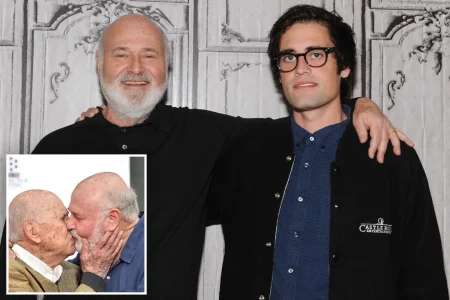Center-Left Leaders Gather as Political Brand Faces Challenges
In a pivotal moment for center-left politics, prominent figures including Mark Carney, Keir Starmer, Pete Buttigieg, and Jacinda Ardern are convening at a summit this Friday. The gathering comes at a time when their moderate progressive approach faces mounting pressures from both ends of the political spectrum. With polarization increasing globally, these leaders aim to reaffirm the relevance of pragmatic, evidence-based governance that balances economic growth with social responsibility. Their meeting represents more than just political strategy; it embodies an effort to preserve a political philosophy that has shaped democratic governance for decades but now finds itself at a crossroads.
The summit participants bring diverse experiences that highlight both the challenges and potential paths forward for center-left politics. Mark Carney, former Bank of England governor, has increasingly spoken about the need for economic models that address inequality while maintaining fiscal responsibility. Keir Starmer, having recently led Labour to victory in the UK, represents a return to power for a party that moderated after years in opposition. Pete Buttigieg, as U.S. Transportation Secretary, exemplifies the younger generation of center-left leaders trying to deliver concrete results through infrastructure and climate initiatives. Meanwhile, Jacinda Ardern, despite stepping down from New Zealand’s premiership, remains an influential voice for compassionate yet practical governance—her “politics of kindness” offering a template that balances progressive values with broad electoral appeal.
The timing of this gathering is particularly significant, as center-left parties worldwide grapple with a complex political landscape where traditional working-class bases have eroded and voter allegiances have become increasingly unpredictable. Economic challenges including inflation, housing crises, and wage stagnation have created fertile ground for populist movements on both right and left. Meanwhile, culture war issues have sometimes left centrist politicians appearing indecisive when compared to the bold rhetoric of political extremes. The summit participants face the delicate task of crafting messages that acknowledge genuine economic grievances while rejecting divisive solutions, all while demonstrating that moderate progressivism can deliver meaningful change in people’s lives through practical governance rather than ideological purity.
Central to these leaders’ discussions will likely be the question of how to rebuild trust in institutions and expertise—cornerstones of their political tradition—at a time when faith in government capacity has declined dramatically. The pandemic revealed both the essential role of competent governance and the fragility of public confidence in leadership. Climate change presents another crucial challenge where science-based, multilateral approaches favored by center-left leaders must compete with both climate denial and unrealistic immediate demands. Economic policy discussions will likely center on how to harness market forces for public good while addressing inequality—perhaps the defining balancing act of center-left governance. Throughout these conversations, these leaders must address the perception that centrism represents mere compromise rather than a distinct political philosophy with its own moral vision of pragmatic compassion.
The personal journeys of these figures reveal much about the evolution of center-left politics. Starmer’s careful reconstruction of Labour’s image following its crushing 2019 defeat demonstrates the electoral calculations required in rebuilding mainstream progressive parties. Buttigieg’s rise from small-city mayor to presidential candidate to cabinet secretary illustrates new pathways for center-left leadership development. Ardern’s governance during crises from terrorist attacks to pandemic response showcased how empathetic leadership can complement technocratic competence. Carney’s transition from central banking to advocacy on climate finance and inclusive capitalism reflects the broadening scope of economic thinking beyond traditional left-right divides. Together, these leaders represent different facets of a political tradition seeking renewal while maintaining core commitments to both progress and pragmatism.
As they gather Friday, these center-left figures face the profound challenge of articulating a compelling vision that transcends mere positioning between extremes. Their task involves demonstrating that moderate progressivism isn’t simply a watered-down version of more radical politics but rather a distinct approach that values incremental, sustainable change and coalition-building. The stakes extend beyond electoral fortunes to fundamental questions about democracy’s resilience in an age of polarization. Can center-left governance deliver economic security while addressing climate change and social justice? Can it respond to populist critiques while defending democratic norms and institutions? The answers developed at this summit may help determine whether center-left politics can evolve from a defensive posture to offer a positive vision that reconnects with voters seeking both change and stability in uncertain times. For these leaders, the challenge isn’t just political survival but demonstrating that pragmatic progressivism remains the most effective path toward just, sustainable societies.










